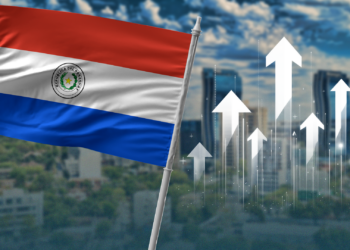A South Korean court ruled unanimously on Friday to remove President Yoon Suk Yeol from office for his short-lived imposition of martial law on Dec. 3, closing a chapter on four months of political turmoil and setting the Asian democracy on the path to new elections by June.
In an 8-0 decision, the Constitutional Court upheld Mr. Yoon’s impeachment, finding that the president had overstepped his authority. Mr. Yoon’s violations caused “grave negative impact on the constitutional order,” Chief Justice Moon Hyung-bae stated somberly, flanked by seven other maroon-robed justices as he delivered the verdict to a silent courtroom.
The united court verdict and its immediate acceptance by South Korea’s two major political parties stirred hope that the young democracy can turn the page on the martial law fiasco – a jarring reminder for many citizens of the country’s dark legacy of military dictatorship as recently as the 1980s.
Why We Wrote This
Months after a failed martial law attempt rattled South Korea, a top court has unanimously decided to remove the president from office. Many are celebrating this as a moment of trial and triumph for the country’s young democratic institutions.
“Korea is going into a crucial period of recovery and healing,” said Song Se-ryun, professor of law at Seoul’s Kyung Hee University, in a live Korean news broadcast after the ruling. Facing a major test, South Korea has upheld the constitution and rule of law, but the crisis has also highlighted the relative immaturity of its democratic system, legal experts say.
“We need to … be a better democracy with better institutions going forward,” added Dr. Song.
A moment of celebration – and trepidation
The midmorning announcement was televised live. It elicited dances and cheers of joy from crowds of citizens watching a huge screen erected in downtown Seoul, reflecting broad popular opposition to Mr. Yoon. Massive protests have consumed Seoul for months, and many of the people gathered on Friday have been demonstrating for Mr. Yoon’s removal since he was impeached by South Korea’s parliament on Dec. 14.
“Thanks to hard work, we won the outcome!” says kindergarten staff worker Ki-Soo Lee, who braved a bitter winter of near daily protests to see that Mr. Yoon was held accountable. “It’s a victory for all of us.”
Mr. Yoon’s supporters, meanwhile, rallied near the presidential residence, voicing anger and dismay at the verdict. The city also dispatched thousands of helmeted police with riot gear to patrol the streets and guard key institutions, including parliament.
Today’s ruling marks the second time South Korea has removed a president through impeachment since the country held its first direct presidential elections in 1987. In 2017, after then-President Park Geun-hye was removed amid a corruption scandal, violent clashes left at least three people dead and dozens injured.
Mr. Yoon, who did not appear in court Friday, was immediately stripped of power and privileges, but retained a security detail. He also faces criminal charges for insurrection, with the first hearing in that trial scheduled for April 14. If convicted, he could face life imprisonment or the death penalty.
“We are going to recover from this crisis,” said the acting president, Han Duck-soo, on Friday, although the career diplomat stressed the country’s situation is “grave.”
South Korea, which is Asia’s fourth-largest economy, faces a new 25% tariff on exports to the United States, and Mr. Han has called for trade negotiations with Washington.
At her noodle counter at Namdaemun market in Seoul, Jang Chang Suk, a supporter of Mr. Yoon, says the tax on exports is just the latest blow to an economy hit hard by political uncertainty. “If we had someone to talk with them, maybe we would be in a better situation,” she says, decrying what she sees as a leadership void.
Political polarization remains
For his part, Mr. Han has pledged to “make sure there is no vacuum in national security and diplomacy” and ensure a stable political transition. Mr. Han has until April 14 to announce the date of the presidential elections, which must be held within 60 days.
A spokesperson for Mr. Yoon’s conservative People Power Party said it “humbly accepts” removal of the president, while the liberal opposition Democratic Party welcomed the ruling.
“We have dramatically resurrected democracy on this land,” said Democratic Party leader Lee Jae-myung, a well-known if controversial figure seen as a strong contender to become the next president.
If Mr. Lee’s party wins the election, it could presage closer relations with China and North Korea than under Mr. Yoon, who was staunchly pro-U.S. and has been compared to President Donald Trump by supporters. Still, South Korean opinion on China has grown more negative in recent years, and Seoul is expected to continue to prioritize its security alliance with the U.S., experts say.
“The liberals will not be as vocal as … President Yoon has been [about deterring China and North Korea], but they will do what they have to do” to support U.S. goals and national security, says Ramon Pacheco Pardo, a professor of international relations at King’s College London and Korea expert.
While South Korea remains politically polarized, with partisan conflicts likely to continue hampering governance, Friday’s court ruling at least underscored that unconstitutional actions such as Mr. Yoon’s resort to martial law will not be tolerated, experts say.
The court’s ruling found that Mr. Yoon’s ordering of troops and police to the National Assembly on Dec. 3 had obstructed legislative authority. Mr. Yoon also violated the law because no national emergency or war existed to justify his martial law decree, the justices said. They rejected Mr. Yoon’s argument that political gridlock caused by “anti-state elements” had compelled him to make a “desperate decision” to restore order. Instead, the court stated that Mr. Yoon should have used dialogue and compromise to work out the conflicts.
“The court reaffirmed these fundamental democratic principles – that is the silver lining of this episode,” says Ethan Hee-Seok Shin, a researcher at the Institute for Legal Studies at Yonsei University. “Hopefully it will bring closure and lead to a new chapter and new beginning.”
Documenting the popular reaction to the historic ruling outside the court building, filmmaker Oh Cheong Ok agrees. “Spring is coming, so it will come to us, too!” he says.
Kyong Chong supported reporting for this story from Seoul.









